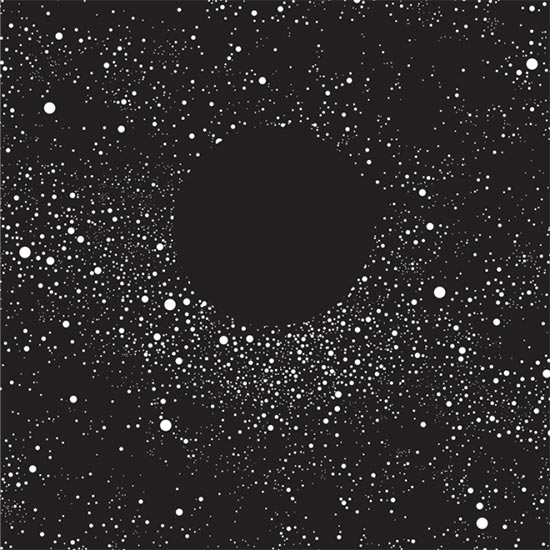
Seer could be seen as a New World Symphony of a vast, prehistoric continent that exists only in your mind. Or in a galaxy far, far away.
Music has been attempting to describe nature for as long as there’s been music — attempting to evoke a babbling brook or the spring rain, through a keyboard or the beating of stones. The story of music could be seen as man’s attempt to get closer to nature, to describe what it is to be human and what it will be, in ever-increasing detail and complexity.
It could be because of this drive that many would-be world-builders took to the emerging field of electronic music, where it became possible to work with the building blocks of sound and with recordings of the natural world, to construct abstract movies of the is as well as the never-was. This was the dream and the vision of the tape-manipulators and the inventors of singing electric machines — to create a new musical language, unfettered from musical prisons; the imagination set free.
The lovers and writers of science fiction recognized this pioneering, visionary quality of early electronic music, and, very soon, the sound of old synths quickly became synonymous with classic sci-fi cinema. And because of this, it becomes almost impossible to listen to a record like Seer and not hear it as a film score. The question is: What kind of movie is it?
Seer manages to be both a soundtrack for a heady ’60s prehistoric sci-fi epic, like Jodorowsky directing Land Of The Lost, or an Amazonian documentary from Werner Herzog, if he started making movies 20 years earlier. But it also smashes through the screen to become what inspired those soundtracks in the first place: 20th Century art classical music. There were moments during Seer, like on the album opener “Petrichor”, when I was reminded of the primal passions of Stravinsky’s The Rite Of Spring and the grand landscapes of Grand Canyon Suite, by Ferde Grofé (“Flight Song”), but Seer is even more capable of evoking a landscape than those daunting forebeare, due to the inclusion of recordings of twittering birds and island bells. What we have here is true tape-modulated classicism – a classy blend of traditional musical values and strong storytelling with the possibilities and imagination of electronic music. While Golden Retriever clearly have a love of classicism, they remain devout electronic musicians, in love with the lab, with the possibilities of sound, and of machines.
Golden Retriever’s music is built around two main components: the bass clarinet of Jonathan Sielaff, and the modular electronics of Matt Carlson. Modular electronics are a complex system of signal-routing, where it is possible to hook up anything to anything else, to create complicated musical automata, nearly as intricate as living ecosystems.
I think it is impossible to touch these machines and not become immediately obsessed with their potential. There is truly no limit – and sound or signal can be routed to an infinite amount of processors and effects. And this is where Golden Retriever’s classical sensibilities come in; they know how to keep it simple, and refined. Every note in its proper place, like with the tinkling rainfall piano of “Sharp Stone” or the hypnotic pulse of “Archipelago”.
All in all, Golden Retriever are doing their part to further the musical mission, as Seer is part pastoral symphony, one part Kubrick soundtrack, equal parts human and machine. And it is all one imaginative, meditative headtrip.
There were moments when I was listening to Seer and the drizzly, cherry-blossomed Portland streets turned into a slow-motion Zen garden; the world transformed into a technicolor continent of fluorescent dinosaurs, and I was flying.
Seer is a wondrous country to lose yourself in, over and over again.
Ω






